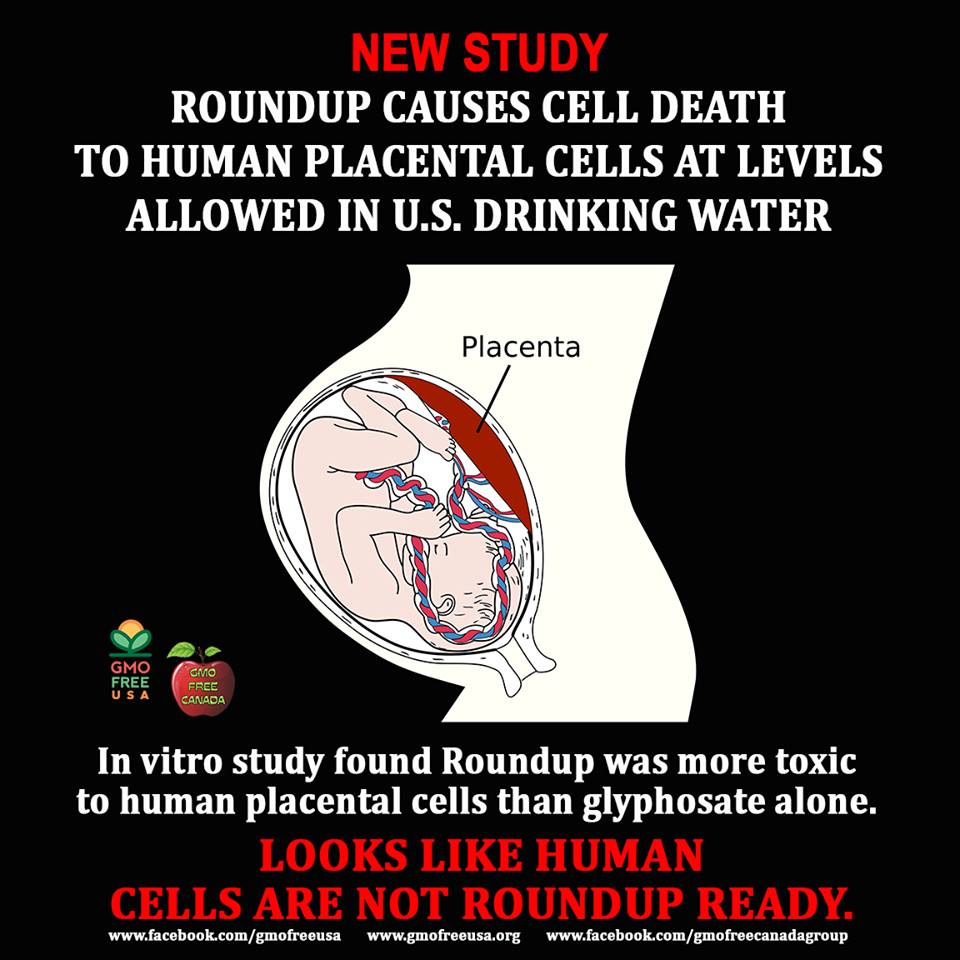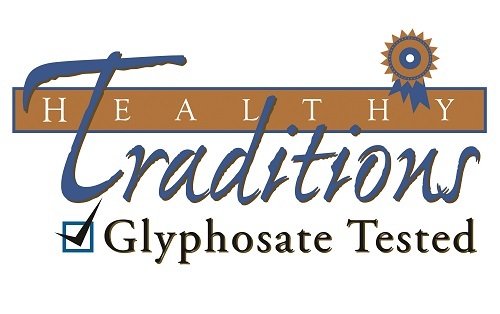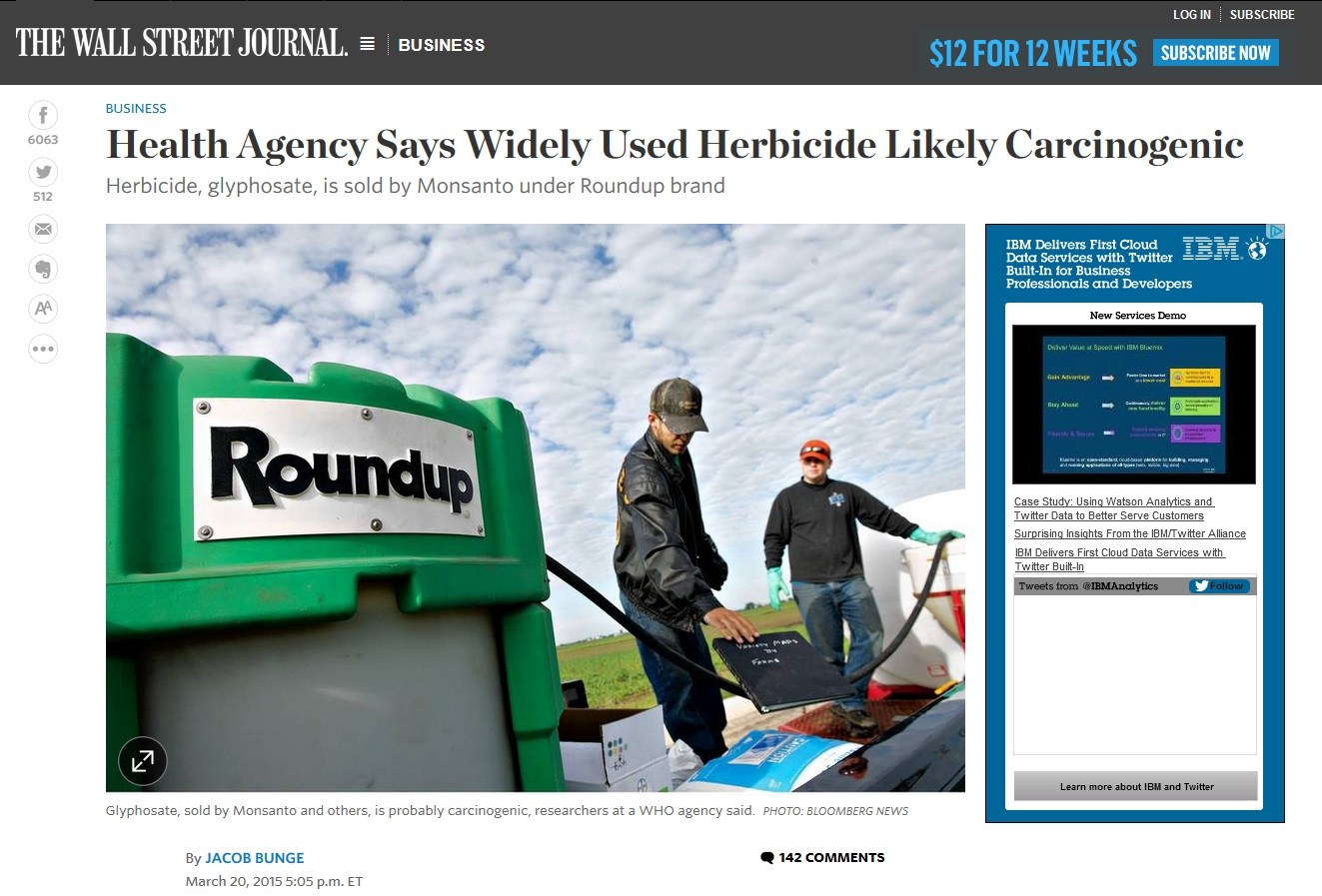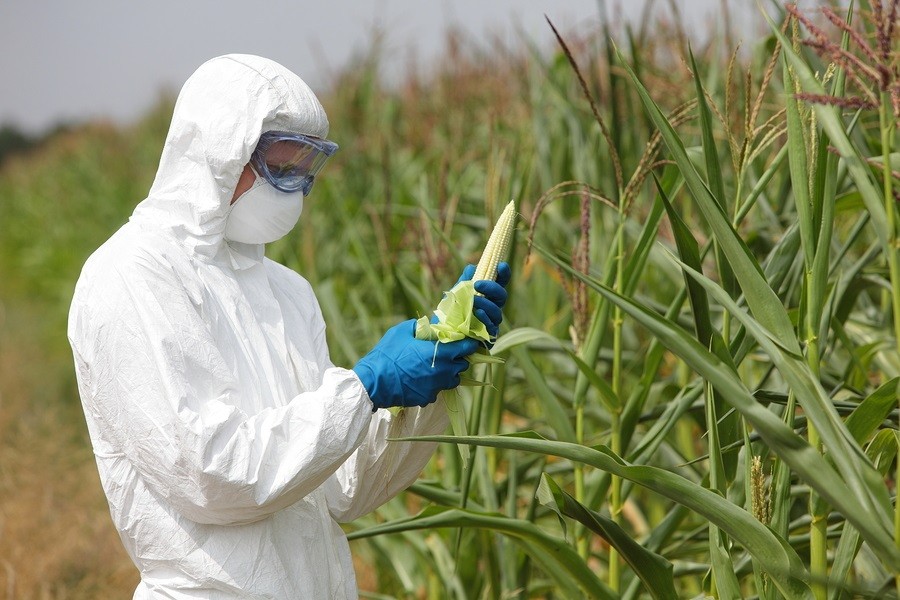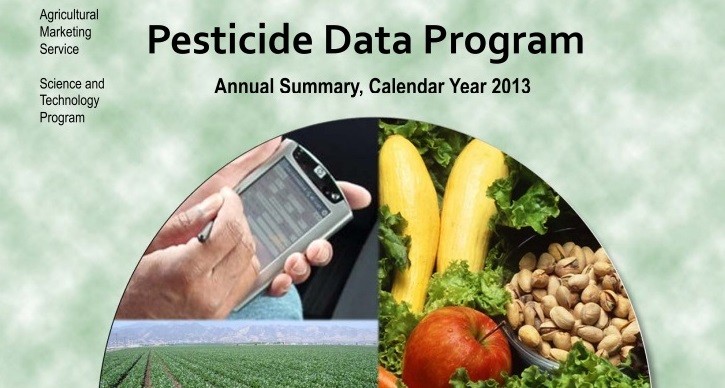Study: RoundUp Causes Cell Death to Human Placenta Cells at Levels Allowed in Drinking Water
Roundup is an endocrine disruptor and is toxic to human cells in vitro (tested in culture dishes in the laboratory) at levels permitted in drinking water in Australia, a recent study has found. This is the first study to examine the effects of glyphosate and Roundup on progesterone production by human female cells in an in vitro system that models key aspects of reproduction in women. Glyphosate alone was less toxic to human cells than glyphosate in a Roundup formulation; both glyphosate and Roundup caused chorioplacental JAr cell death which resulted in decreased progesterone levels – a form of hormone/endocrine disruption. Endocrine disruption did not precede the toxicity to cells but occurred after it. The decreases in progesterone concentrations were caused by reduced numbers of viable cells.




